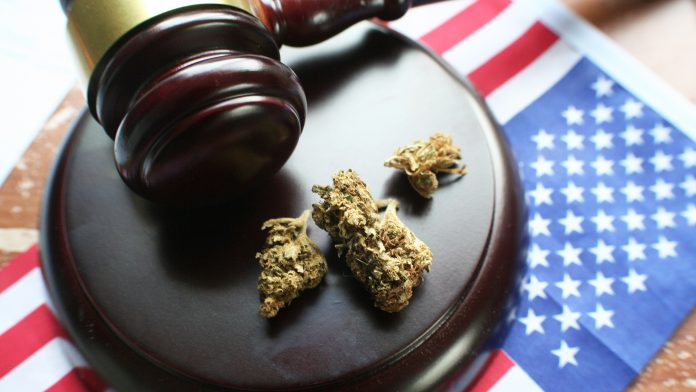
Research from the University of Waterloo has identified that despite being legalised in various parts of North America, black market cannabis sales are still considerable.
Recreational use of cannabis is now permitted in Canada and 18 states across the US, an initiative that was partly implemented to seize control of the drug, taking it out of the illegal market and into a regulated, legal one.
However, black market cannabis is still booming, with research from the University of Waterloo suggesting the reason for this is that the higher prices and inconveniences associated with legal sources drive people toward illegal providers. The study, published in the Journal of Studies on Alcohol and Drugs, explored the barriers to legal access that keep the illegal cannabis market thriving.
The scale of the illegal cannabis market
In their investigation, the university researchers analysed data from the 2019 and 2020 International Cannabis Policy Study, which included data from people aged 16 to 65-years old. The participants were questioned about their cannabis use in the last 12 months, such as how much they used the drug and whether they obtained it from a legal or illegal source. People who acquired cannabis via an illegal source were prompted to choose from a list of reasons for purchasing black market cannabis.
The main reason for purchasing illegal cannabis in both years among people in Canada was because “legal sources had higher prices”, with 35.9% stating this in 2019 and 34.6% in 2020. In the US, this was also the main driver of purchasing illegal cannabis, with 27.3% of participants listing this in 2019 and 26.7% in 2020. Convenience was also a major factor, with legal stores being too far away or not where people lived, causing between 10.6% to 19.8% of respondents to buy cannabis illegally.
Other potential reasons included low quality, wanting to stay anonymous, delivery speed, and loyalty to a dealer, although these were selected far less frequently as influencing purchase decisions compared to price and convenience.
David Hammond, PhD, professor and university research chair at the University of Waterloo’s School of Public Health Sciences and co-author of the study, said: “We also observed differences across jurisdictions and changes over time—many reasons decreased in later years, which reflects changes in the number of stores and the price of cannabis in Canada and US states that have legalised adult cannabis use.”
Impacts of pandemic restrictions
The team explained that COVID-19 restrictions potentially influenced changes in responses between 2019 and 2020, with more than 10% of participants stating that the pandemic restricted their ability to buy cannabis in 2020 legally. However, some US states and Canadian provinces implemented legal cannabis delivery services during COVID-19 lockdowns, which may explain the reduction in respondents reporting slow delivery times and inconvenience.
The main objective of legalising recreational cannabis use was to eradicate the illegal market and take power away from organised crime, meaning the reasons highlighted in this study for why this goal has not been achieved can help to optimise the legal market.
Hammond concluded: “Cannabis legalisation is one of the most notable substance use policies in several decades. Transitioning consumers from illegal to legal retail sources is a primary goal of legalisation. Indeed, many of the potential benefits of legalisation—including product standards, revenue for legitimate businesses, and reducing the burden on the criminal justice system—depend upon shifting consumers to legal cannabis sources. Given the importance of this issue, there is surprisingly little empirical evidence on the factors that determine where consumers source their products in a legal market.
“As markets mature, the number of stores per capita tends to increase, and inconvenience is expected to become less of a hurdle. Regulators will need to balance public health and criminal justice priorities in order to establish a competitive market for legal cannabis that encourages legal purchasing.”


















